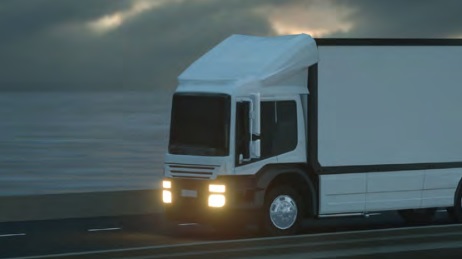Driven largely by ambitious climate agendas and aggressive net-zero targets, fleet operators across the US are actively decarbonizing their operations.
A new Black & Veatch eBook, Fleet Decarbonization: A Guide to Cost-Efficient Zero-Emission Vehicle Transition notes that advances in hydrogen and the electrification of transportation, particularly for medium- and heavy-duty vehicles, are amplifying the importance and promise of zero-emission vehicles (ZEV) in making transportation cleaner, sustainable and resilient.

"Transportation and energy are becoming increasingly intertwined, opening new opportunities for operators to decarbonize their fleets, build energy resilience, and economize the cost of power," said Dean Siegrist, Associate VP of Black & Veatch's Transformative Technologies business. "The benefits of ZEV are clear, and market momentum is increasing. Now is the time for fleet operators to start mapping out how to accelerate clean, sustainable, and cost-efficient transportation and energy in our communities."
To truly decarbonize transportation, the US must invest in building out additional infrastructure, among other things by expanding electric vehicle (EV) charging networks and fuel cell electric vehicle (FCEV) hydrogen filling stations.
Hydrogen supplies need to be increased, and adequate electric supplies must be built and developed in critical locations.
With industry interest growing, utilities, power marketers and fueling companies are motivated to expand these networks, and 2021 could see a blitz of new programs as funding surges.
"EVs and FCEVs are both viable technologies, and the best decarbonization plan may be one that is flexible enough to include both technologies," said Randal Kaufman, sales director for Black & Veatch's Transformative Technologies business. "Good planning now will ensure optimal configuration of vehicles, EV charging and hydrogen filling infrastructure, and energy options to build that pathway towards a more decarbonized, resilient and economically powerful future."
Market confidence in ZEVs will only continue to grow as technology advances EVs and FCEVs, motivating fleet operators to begin their transition to ZEVs. As long-term investments, EV-charging networks and FCEV hydrogen filling facilities are intended to endure even as the technology evolves.
No matter the approach, the journey towards sustainable and cost-efficient transportation begins with adequate energy supply and well-designed infrastructure.




